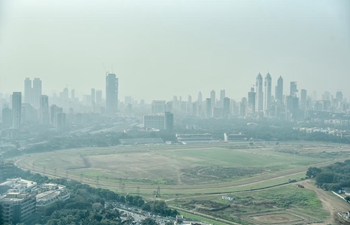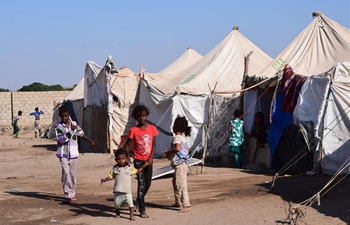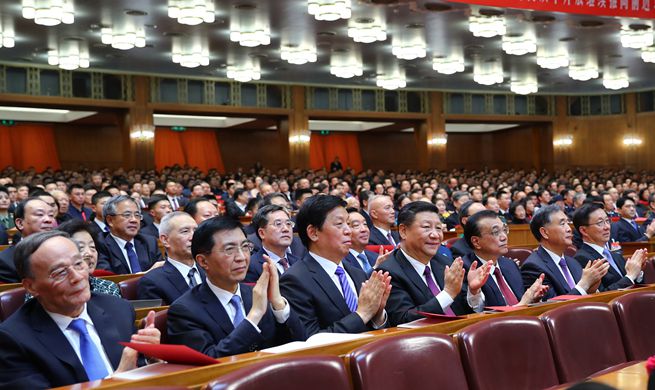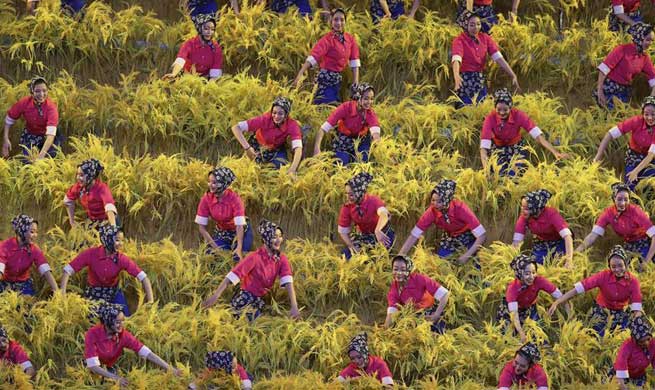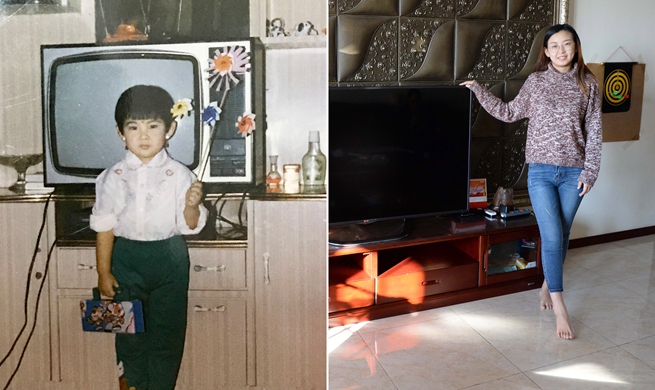HOHHOT, Dec. 15 (Xinhua) -- There are various ways to help people out of poverty, but Bai Wenjun, a poverty relief cadre, has created a way of his own, shooting short films.
Bai, 31, was assigned to the village of Aotegin in Horqin Zyoyi Houqi, northern China's Inner Mongolia Autonomous Region, in May 2016.
"When I first came here, I found that the most difficult thing in poverty relief work was to change villagers' minds and encourage them to work hard," he said.
"How can I clearly explain poverty relief policies to villagers? And how can I help them kick their old bad habits? What is the way that is more effective than words?" Bai often asks himself.
Bai, who likes to shoot videos in his spare time, came up with the idea of making short films.
In November 2016, he created his first film script.
"The main character of the film, Amor, didn't like working. The local government gave him loans to raise cattle, but he didn't make good use of it. Later, with encouragement from his daughter and help from poverty relief cadres, he finally found a way to work out of poverty," he said.
Although the film only tells the story of one household that was living under the poverty line, Amor's story is actually based on the real stories of four to five households in the village, he said.
The film was made in Mongolian so that it can be better understood by villagers, mostly ethnic Mongolians.
"We had the similar difficulties that Amor had with loans and cattle raising. After watching the film, we now better know how to solve these problems," said Han Wenming, a villager.
Bai's team is made up of over 30 members, mostly his colleagues and friends, who have taken part voluntarily.
"We have named our team 'Up Studio' because we want to spread more positive stories about poverty relief work though the camera," he said.
Since 2016, Bai has shot a total of 18 short films explaining poverty-relief policies and getting rid of bad habits.
Villagers not only watch the films, but have also started to take part in film-making.
Han, for example, offered his own bungalow as a filming spot for one of the films.
"I was afraid that my room would be too shabby, and it wouldn't look good in the film. But Bai told me not to worry as a real scene would be the best," he said.
"My bungalow was in the film. Next time, I want to play a role and show the changes and the new look of our village after we have all walked out of poverty," he said.
The village had 43 households that were living under the poverty line. So far, 36 households have come out of poverty through methods including raising cattle and developing solar energy.
"I will still shoot short films even when all the villagers are out of poverty. I want to present their new life and tell stories about rural revitalization," Bai said.




